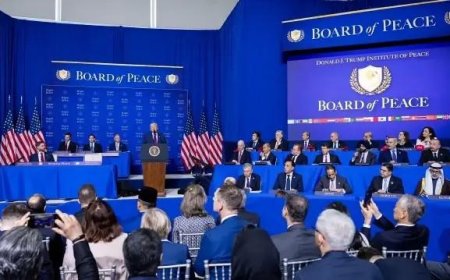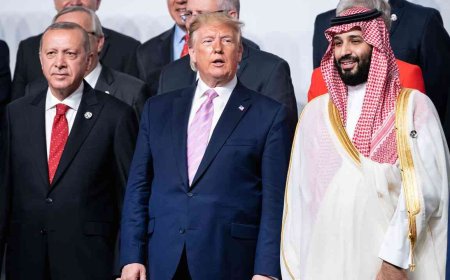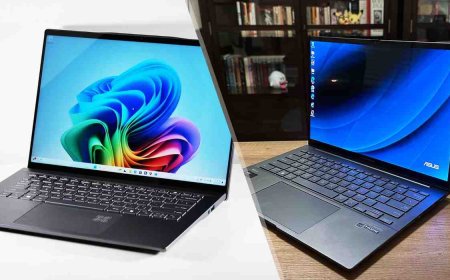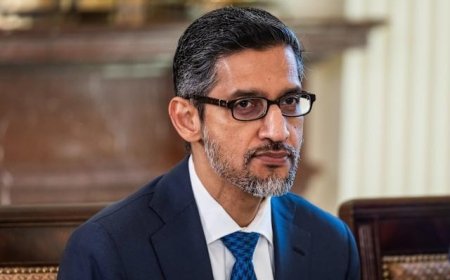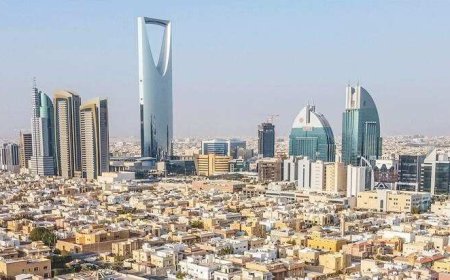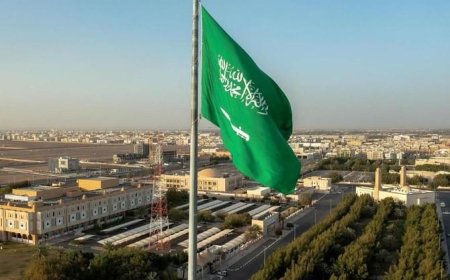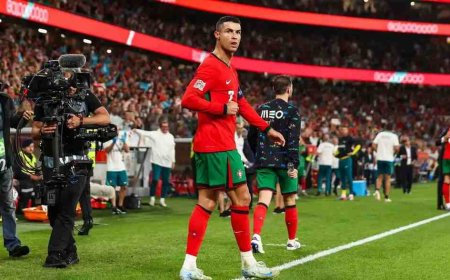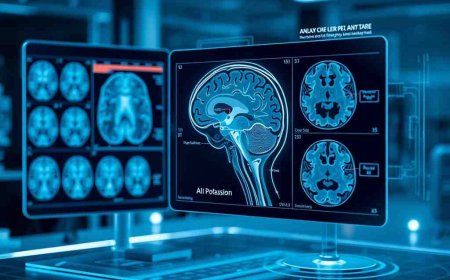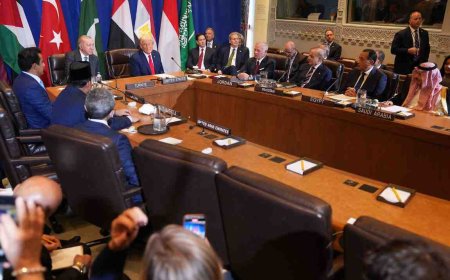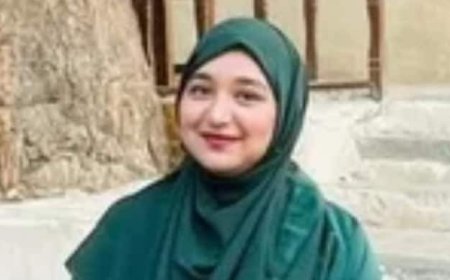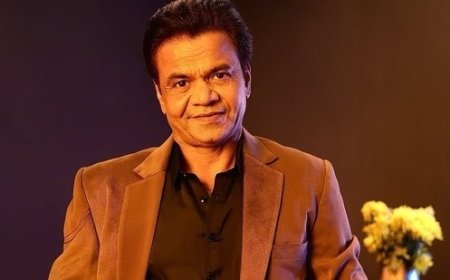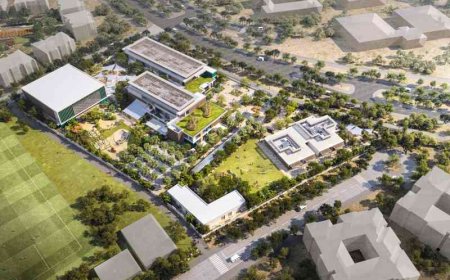MBS US Visit: Saudi Arabia Pursues Strategic Defense Pact, AI Partnership, and Nuclear Deal
Saudi Crown Prince MBS is in the US to negotiate a historic defense pact, AI tech access, and a civilian nuclear deal. Learn the stakes for US-Saudi relations and Vision 2030.
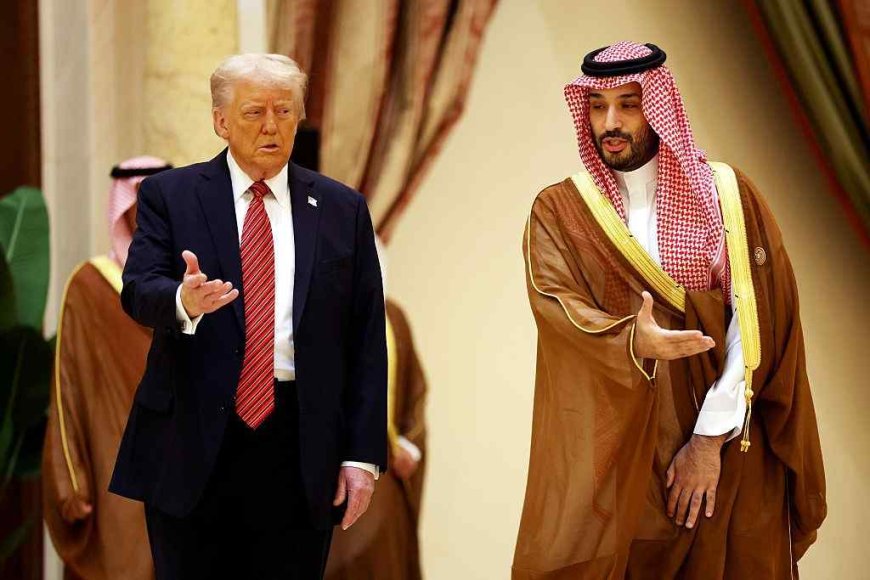
MBS US Visit: Saudi Arabia Pushes for Defense Pact, AI, and Nuclear Deal
Saudi Crown Prince Mohammed bin Salman (MBS) has embarked on a pivotal visit to the United States, marking his first major trip since the 2018 Jamal Khashoggi incident. The agenda is strategically focused on forging a new era of cooperation centered on three key pillars: a formal US-Saudi defense pact, access to cutting-edge artificial intelligence (AI) technology, and a framework for a Saudi civilian nuclear program. This visit is widely seen as a critical step in solidifying the strategic partnership between the two nations and advancing Saudi Arabia's ambitious Vision 2030 economic transformation plan.
The Tripartite Agenda: Security, Tech, and Energy
At the core of the Crown Prince's mission is the pursuit of a mutual security guarantee. Saudi Arabia is actively seeking a binding defense treaty with the US, a move that would significantly deepen the decades-old security alliance and provide Riyadh with robust assurances against regional threats.
Parallel to security, a major drive is underway to secure US cooperation and technology for a peaceful nuclear energy program. For Riyadh, this is a strategic imperative to diversify its energy mix, reduce domestic oil consumption, and maintain regional parity with neighbors like the UAE. However, this ambition comes with non-proliferation challenges, as the US is insisting Saudi Arabia commit to forgoing uranium enrichment and plutonium reprocessing.
The third pillar involves positioning Saudi Arabia as a future tech leader. The Kingdom is pushing for access to advanced AI chipsets and related technology, which are essential for powering its burgeoning tech sector. This aligns with massive investments, including the newly launched AI firm Humain, backed by the powerful Public Investment Fund (PIF).
Diplomatic Hurdles and the Israel Factor
The path to an agreement is complex and fraught with diplomatic conditions. US officials have indicated that any US-Saudi defense pact is likely contingent on Saudi Arabia taking significant steps toward normalizing relations with Israel. This creates a delicate balancing act for MBS, who must navigate the deeply sensitive Palestinian issue while securing the desired security guarantees from Washington.
The civilian nuclear deal also presents a major sticking point. American demands to restrict enrichment capabilities are at odds with Saudi desires for a self-sufficient, full-cycle nuclear program. Bridging this gap will be a key test for negotiators during the visit.
Economic Stakes and the $600 Billion Vision
Beyond geopolitics, the visit is a launchpad for monumental economic collaboration. Reports suggest discussions include a staggering $600 billion investment pledge from Saudi Arabia into the US economy. These investments are envisioned to flow into strategic sectors like AI, semiconductors, and defense, creating a powerful economic underpinning for the renewed strategic partnership.
This economic dimension is central to Vision 2030. By securing technology transfers and investment partnerships, Saudi Arabia aims to rapidly build a post-oil economy founded on knowledge and innovation, with AI and high-tech computing as its cornerstones.
Broader Implications and Challenges
This visit signifies a profound evolution in US-Saudi relations, moving beyond the traditional "oil for security" framework to a more complex partnership focused on future-defining technologies. For the US, a deeper alliance with Riyadh offers a way to maintain influence in the Gulf and counter rivals like China and Iran.
However, the negotiations are not without risks. From the US perspective, critics may raise concerns about transferring sensitive AI and nuclear technology. Furthermore, human rights issues and the Khashoggi legacy continue to linger in the background, potentially influencing congressional approval for any major defense or nuclear agreement.
Conclusion: A Defining Diplomatic Moment
Crown Prince Mohammed bin Salman's US trip is a defining moment for Middle East diplomacy and the future of US-Saudi relations. The outcome of these talks on defense, AI, and nuclear energy will not only reshape the bilateral relationship but also have far-reaching consequences for regional security, the technological landscape, and the global balance of power. Success hinges on both nations navigating a web of diplomatic, technological, and geopolitical challenges to find common ground.
What's Your Reaction?









